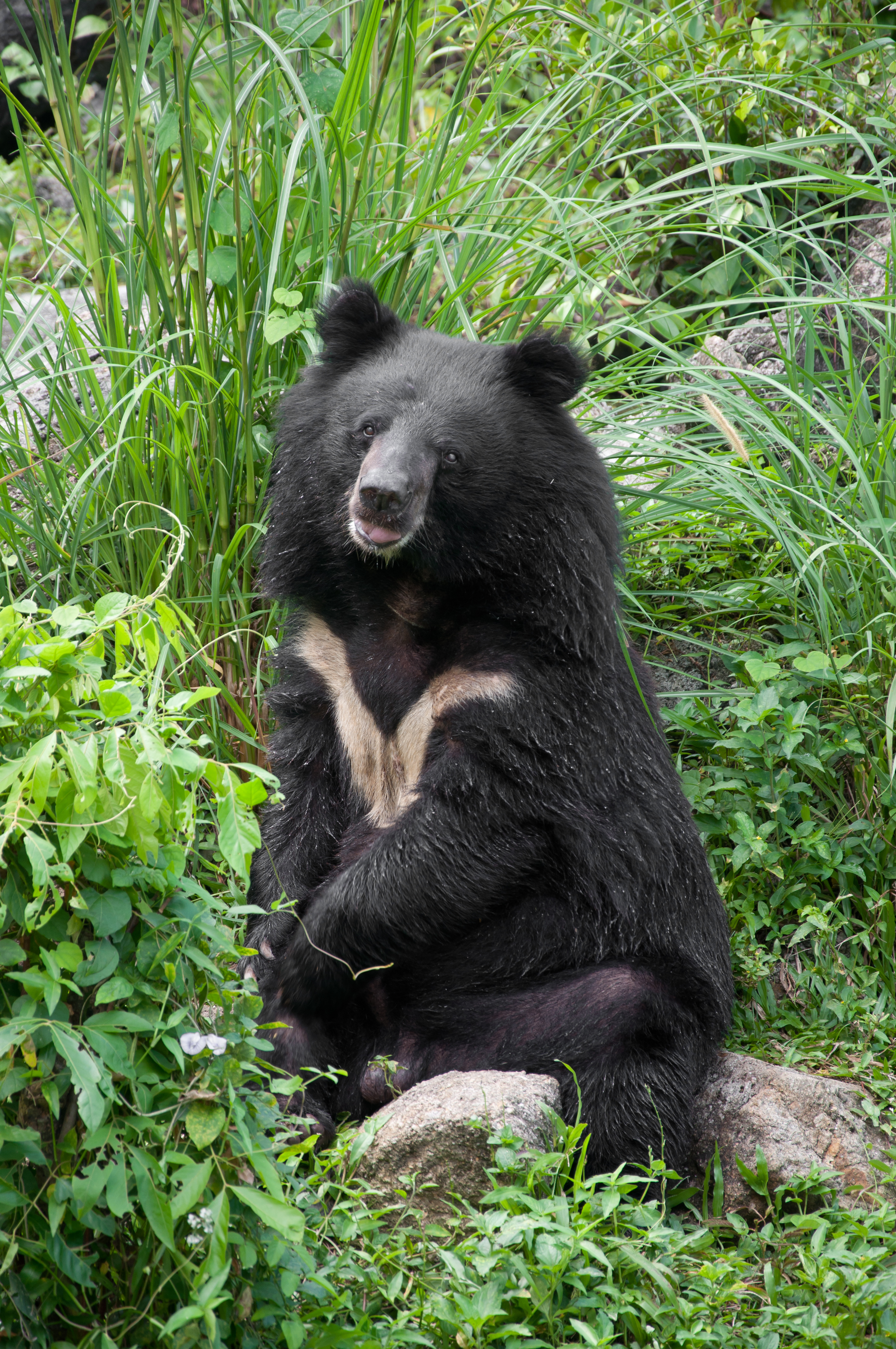Asiatic black bear is a large Asian mammal with a shaggy black coat and a cream-colored patch on its chest. This patch is shaped like a crescent moon. For this reason, the bear is also called the moon bear. Rarely, an individual may be born brown or blond in color. Blond individuals are called golden moon bears. The Asiatic black bear has a large, rounded head with small eyes and big ears. The bear measures from 4 to 6 feet (1.2 to 1.8 meters) in length and may weigh from 110 to 440 pounds (50 to 200 kilograms). Males are larger than females.

Asiatic black bears live across South Asia, Northeast China, Japan, and Far East Russia. They usually live in forest habitats in lowlands, hills, and mountains. The bears live in the high country in summer and move to lower elevations for the winter. Asiatic black bears are known to venture onto agricultural plantations to feed. They eat a wide variety of food, including berries, fruits, honey, insects, nuts, small vertebrates (animals with backbones), carrion (dead animals), and sometimes livestock. Tigers and brown bears sometimes prey on Asiatic black bears, as may other large carnivores, such as wilds dogs and leopards.
Asiatic black bears live alone, except for mating pairs or mothers raising cubs. Bears that live in regions with harsh winters almost always enter a period of winter sleep to conserve energy. In this state, the bear does not eat or drink and only awakens when it is disturbed. Adult females give birth during this time to one to three cubs. The cubs stay with their mother for about two years. An Asiatic black bear may live about 25 years in the wild.
Asiatic black bears are threatened by extensive loss of habitat. Deforestation rates are high across much of their range. Asiatic black bears are traded illegally more than any other bear species in the world. They are sought because the bile found in their gallbladder is highly valued in traditional Chinese medicine. Bile is a fluid produced by the liver. The bear’s bile is used in Chinese medicine to treat conditions ranging from a bruised knee to polio. For a rural worker, the profit from hunting one bear can exceed a year’s salary. Some countries have tried to farm the bears as an easy way to produce the bile.
